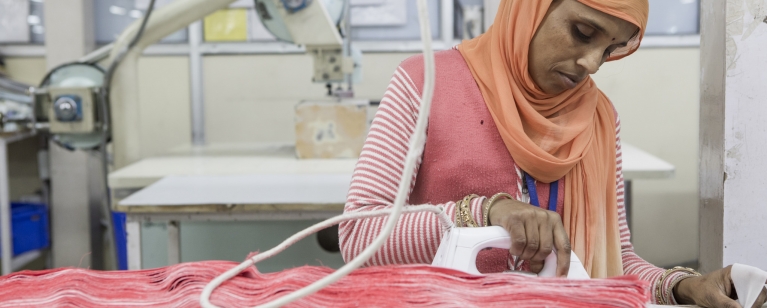
As part of her Nalam Peer Educator training in a Tiripur garment factory, Ms. Bhuvaneswhari learned about Indian laws relating to overtime and discovered that forcing a worker to work overtime is illegal, and any overtime worked must not exceed 12 hours a week, or 50 hours a quarter.
Ms. Bhuvaneswhari mobilized around 50 women workers to raise concerns around forced overtime with the senior management, who then held a meeting with middle management and decided not to put an end to all forced overtime. This decision was also incorporated into the factory policy book.
She says, “One of the great things that I learned is that there are laws and policies which are meant to protect workers from exploitation and every worker should raise their voice when they are exploited at the workplace. We are now demanding double wages for voluntary overtime work and the management has agreed to pay the workers double wages very soon.”
